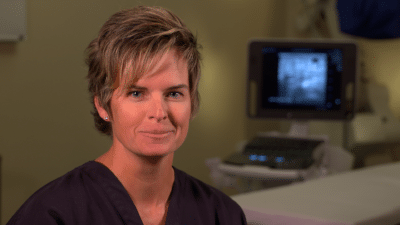
Vaginal Varicose Veins – Is that even a thing?
If you have even heard of vulvar varicosities, chances are it is because you have experienced them. And it is likely you had to work ridiculously hard to uncover any information about the topic. Varicose veins of the vulva and perineum just don’t get a whole lot of press. Commonly quoted estimates state that about 10 percent of women will experience vulvar varicosities during pregnancy, but it is possible that number is higher because some women just won’t talk about it.
And if you look at the rare online discussion about vaginal varicose veins, like JustMommies.com you will see that women who experience the symptoms of vulvar varicosities are completely surprised when it happens—because they had no idea such a thing could even happen.
Let’s change that!
Let’s get women the information they need to live more comfortable, more present lives. Let’s start talking about it. Let’s take it from being a thing to just being, you know, a thing. If we need to, let’s talk to our sisters, our girlfriends, our wives, our mothers. And, if you have any questions about this or any other vein issue, another great person to talk to is a qualified vein specialist.
Vulvar varicosities: But Why?!
Basically, it is possible to develop a varicosity in any part of the body. But there are a few reasons why your vulvar area can be susceptible.
- Gravity. Baby and placenta put a lot of pressure on the pelvic region, and this creates back pressure on the veins in the pelvic floor.
- Hormones. The pregnancy hormones that are circulating to prepare your pelvis for birth also make your veins—all of your veins—prone to distension. Estrogen, progesterone and relaxing all play a part.
- Mechanics. The venous valves that are designed to provide some protection against pooling of blood in lower regions occur less frequently the closer the vein is to the heart. In a small percentage of women, there are no venous valves in the vulvar area.
Some Good News About Vaginal Varicose Veins (and a Little Bad News-but Mostly Good)
Let’s start with the good...
- Good news—they are transient. Chances are good that they will go away once baby is born.
- Bad news—they are transient. If you get them once, vulvar varicosities will come back—and likely sooner—with each subsequent pregnancy. As well, with each pregnancy, there is an increasing chance that they will stay, even after the baby is born.
- Bad news—they could be a sign of more ominous things. It is possible that vulvar varicosities are a sign that you have developed, or are developing, Chronic Venous Insufficiency (CVI), especially if they appear with varicose veins in your legs. A qualified vein specialist can look at your veins and tell you if this is the case for you.
Here's the Really Good News
The really good news, though, is that if varicosities do appear during pregnancy, and don’t go away once baby is born, there are vulvar varicosity treatments available that can get you back to feeling like your old self with minimal fuss. A qualified vein specialist like Dr. Jilanne Rose from Advanced Vein Institute of Arizona (AVIA) will be happy to talk to you about your options. However, as she wants you to have the most successful experience possible, she will caution you about the timing of treatments.
“One thing to keep in mind is that if you are currently or recently pregnant, you will have to wait a bit before a vein specialist can treat you,” Dr. Rose says. “Birth will relieve much of the pressure on the area. However, your body will need some time—at least a few months—for hormone levels to return to normal and for your body to re-adjust. In the end, you might not even need treatment.”
While you wait, Jilanne has a few suggestions you can try to find some temporary relief from the symptoms of vulvar varicosities.
More good news: it is really easy to talk to Jilanne. Call the office or fill out this form if you would like to get a conversation started about whether vein treatment is what you need to get back to living more comfortably.
Entrevista con el Dr. Rose Durante nuestras entrevistas en video con Jilanne Rose le pedimos que nos contara algunas historias sobre sus experiencias en el tratamiento de las varices a lo largo de los años. Esta historia se trata de un paciente que se había despojado de las venas realizadas hace años y tenía miedo…
Read MoreDr. Rose Interview During our video interviews with Jilanne Rose we asked her to tell us some stories about her experiences in Varicose Veins Treatment over the years. This story is about a patient who had vein stripping performed years ago and was afraid of going through the process again because of the pain she…
Read MorePregunta: ¿puede usted conseguir congestión pélvica cuando usted nunca ha estado embarazado, y puede interferir con flujo de la orina?
Read MoreQuestion: Can you get pelvic congestion when you have never been pregnant, and can it interfere with urine flow? Answer: Pelvic congestion syndrome, although uncommon, can occur in women who have not been pregnant. These varicose veins in the lower abdomen typically do not cause problems with urination. Best to be evaluated by a gynecologist…
Read MorePregunta: tengo dolor y venas de araña apareciendo sobre todo en la zona del muslo después de mi ablación que fue hace 2 meses. GSV cerrado y SSV bien. Estoy usando 20-30 mmHG medias de rodilla-alta todos los días. ¿Cuál es la causa?
Read MorePregunta: tuve tratamiento de la escleroterapia de la espuma para la vena varicosa hace 2 meses por una técnica llamada catéter de flebogrif y leí que puede causar complicaciones como el movimiento. ¿Sigue siendo probable el riesgo? ¿Y qué sucede con la sustancia química usada en la espuma después de la inyección, permanece en el…
Read MoreQuestion: I had foam sclerotherapy treatment for varicose vein 2 months ago by a technique called flebogrif catheter and I read that it may cause complications like stroke. Is the risk still probable? And what happens to the chemical substance used on the foam after the injection, does it remain in the blood stream and…
Read MoreQuestion: I have pain and spider veins popping up mostly in the thigh area after my ablation which was 2 months ago. GSV closed and SSV ok. I am wearing 20-30 mmHG knee-high stockings every day. What is the cause?
Read MorePregunta: ¿Cuánto tiempo toma la cirugía de la vena varicosa en sí misma y cuánto hora debo esperar para la recuperación?
Read MorePregunta: ¿Qué puede decirme un examen de reflujo venoso? ¿Cómo mide el tratamiento la efectividad de mis venas?
Read More
